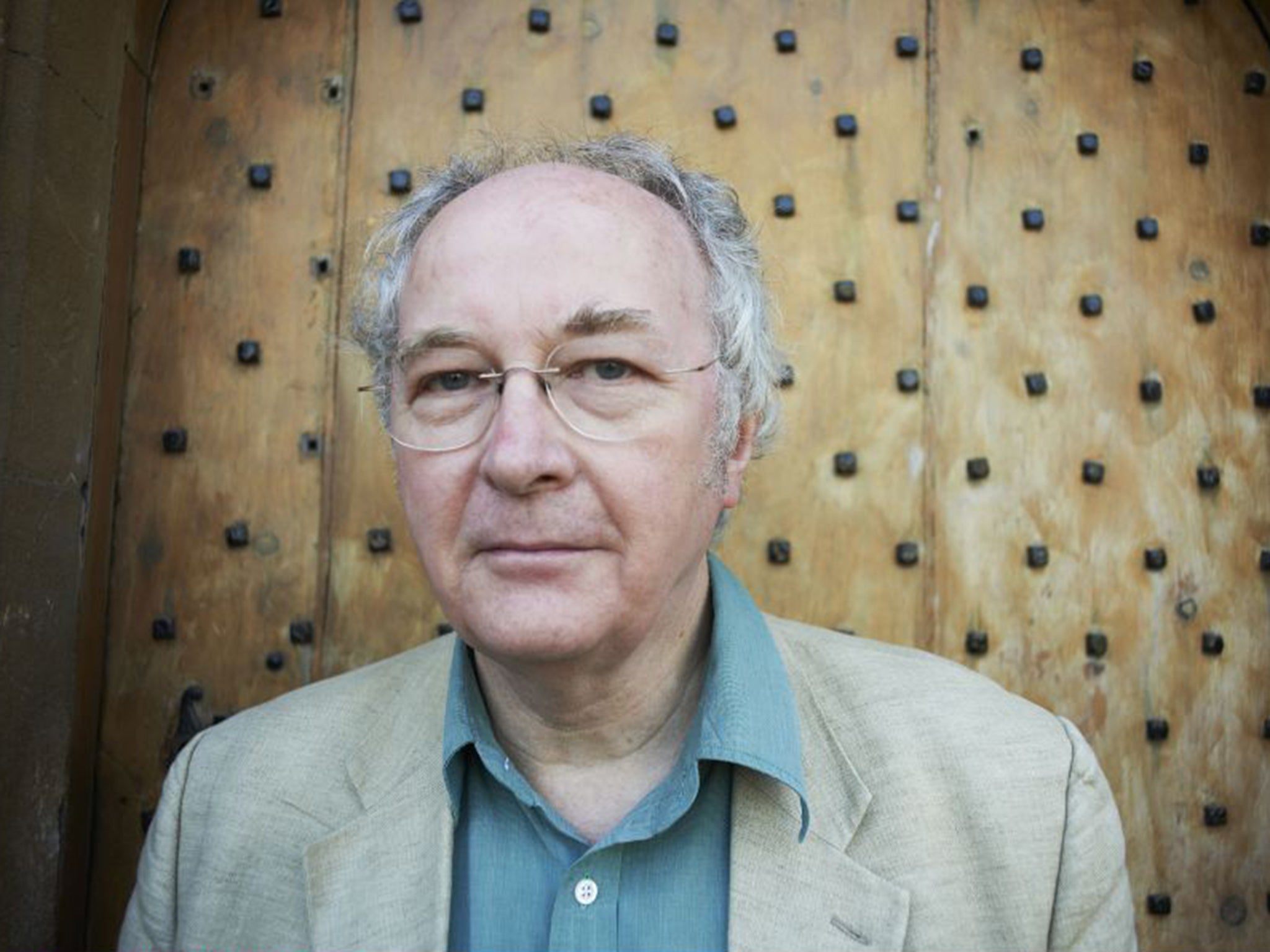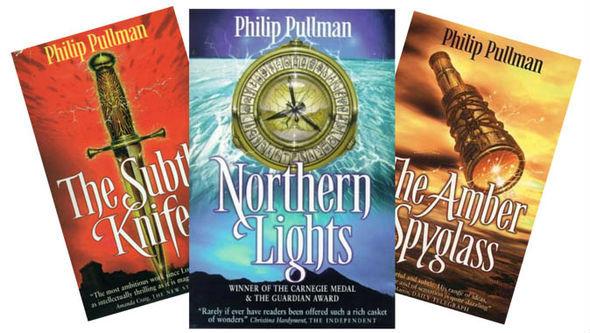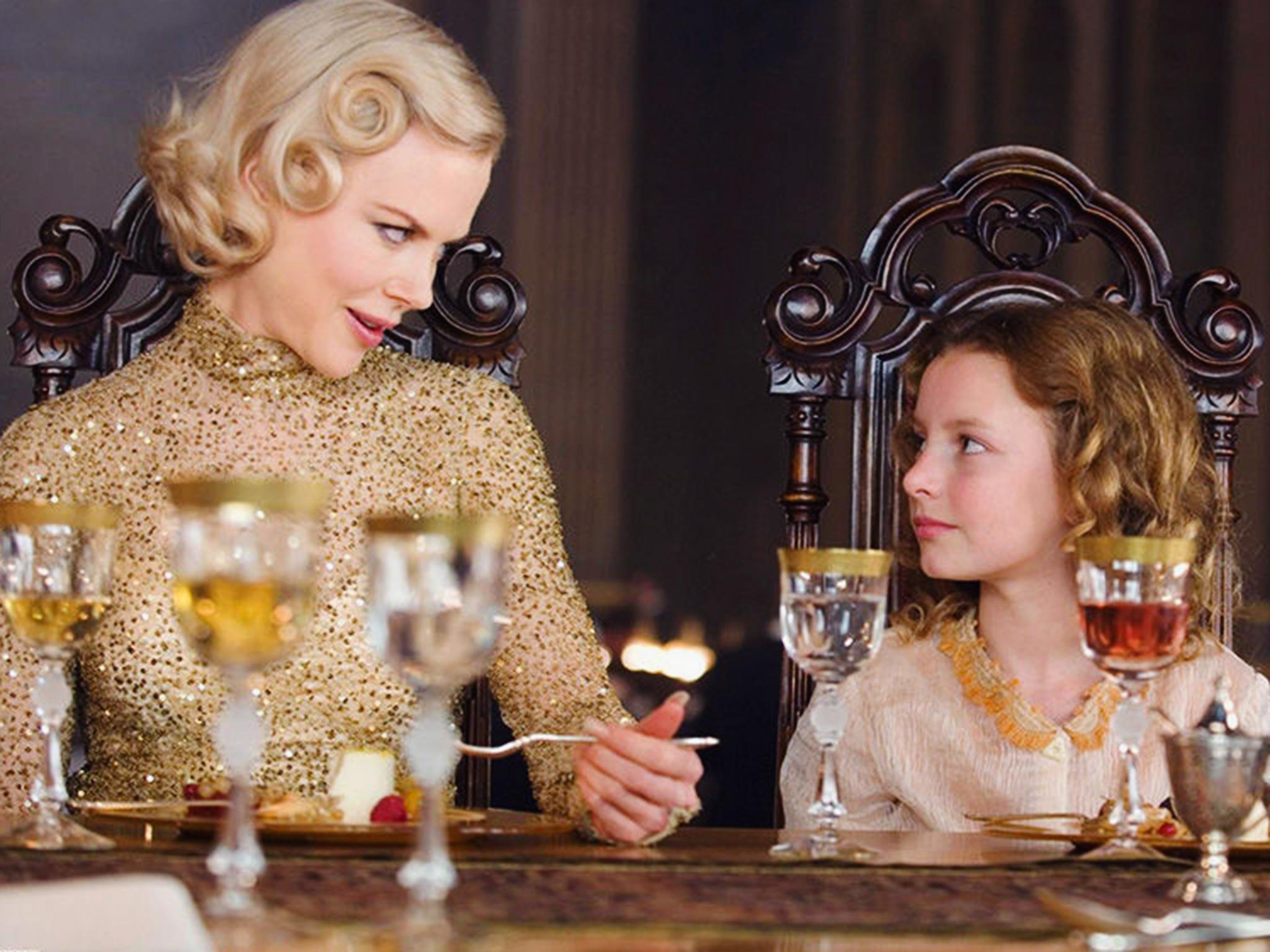Why Philip Pullman's The Book of Dust will tell us something about 21st-century politics
Philip Pullman has been outspoken in his criticism of Donald Trump, so his forthcoming fantasy trilogy ‘The Book of Dust’, about the struggle between despotism and free speech, will certainly be read allegorically

Your support helps us to tell the story
From reproductive rights to climate change to Big Tech, The Independent is on the ground when the story is developing. Whether it's investigating the financials of Elon Musk's pro-Trump PAC or producing our latest documentary, 'The A Word', which shines a light on the American women fighting for reproductive rights, we know how important it is to parse out the facts from the messaging.
At such a critical moment in US history, we need reporters on the ground. Your donation allows us to keep sending journalists to speak to both sides of the story.
The Independent is trusted by Americans across the entire political spectrum. And unlike many other quality news outlets, we choose not to lock Americans out of our reporting and analysis with paywalls. We believe quality journalism should be available to everyone, paid for by those who can afford it.
Your support makes all the difference.Millions have been thrilled to hear that His Dark Materials author Philip Pullman is back with the long-awaited follow-up to the famous trilogy. The Book of Dust had been referred to as early as the publication of The Amber Spyglass in 2000, but now it’s been confirmed that the first in a new trilogy will be published in October. Pre-orders have already propelled the first title to the top of the bestseller lists, and speculation is running riot.
This autumn Pullman fans will be able to take an exhilarating dive back into the fictional worlds of a master storyteller, whose audacious imagination brought us both “daemons” and “dust”. Daemons are the animal alter ego, external soul, and constant companion of each character. Dust is a complex entity, an idea of consciousness connected to human evolution and the development of the human body during the course of adolescence, revisiting and rewriting philosophical ideas of the spilt between the material body and the soul. As Pullman wrote on his blog recently: “I always wanted to return to [Dust] and discover more”.
The wildly inventive fantasy worlds of Northern Lights (The Golden Compass in its US and film versions) and its sequels combined with real-world moral and political questions to create critical and commercial successes at the turn of the 21st century. The Amber Spyglass won the overall Whitbread Book of the Year, as well as the Children’s category award in 2001, a clear sign that children’s literature was being taken seriously. Pullman’s trilogy and JK Rowling’s Harry Potter books have frequently been seen a ushering in a “golden age” of children’s literature in the UK. Both series would go on to have spin-off titles, multiple adaptations and academic works devoted to their analysis and impact.
What, then, does The Book of Dust trilogy promise? Pullman says the series will be “equels” (rather than prequels or sequels), although the first book will focus on Lyra, the protagonist of His Dark Materials, as a baby 10 years before the start of Northern Lights. The second will switch to her as a 20-year-old. Characters that had walk-on parts in the original trilogy will take centre stage. The worlds Pullman has already created are more than capacious enough to enable ongoing world-building – and the author has left himself a multitude of loose ends and unanswered questions.

This continual invention already spawned two short and beautifully produced associated books, Once Upon a Time in the North and Lyra’s Oxford. And Pullman has not been the only writer working on the worlds of His Dark Materials between since they were published. The advent of digital technologies have enabled fans to write, upload, share and comment on work inspired by traditionally published writers, most notoriously with the work that would eventually become Fifty Shades of Grey, which began life as Twilight fan fiction.
His Dark Materials has provided much for fans to work on. Are Lyra and Will really separated for ever at the end of The Amber Spyglass? What happens to Lord Asriel after his deathwards plunge? Richly created fantasy worlds encourage new invention, following a tradition of “minor characters having their day”. Readers want to find out more, put right plot twists they disagreed with, and – in the salacious sub-genre of slash fiction – create sexual partnerships the author might never have envisaged.
Some authors police their creations more fiercely than others. There are occasional skirmishes between JK Rowling’s huge fan community and the tightly controlled world of Pottermore. Fans, though, can breathe new life into existing texts and fill a gap that the author can’t always fulfil.
Pullman is aware of the level of expectation around his work – and the same questions that bother fan fiction writers have bothered him. “There’s always more to explore,” he writes on his website. “Questions about that mysterious and troubling substance were already causing strife 10 years before His Dark Materials, and at the centre of The Book of Dust is the struggle between a despotic and totalitarian organisation, which wants to stifle speculation and enquiry, and those who believe thought and speech should be free.”
Fifteen years ago at the Edinburgh International Book Festival, in the post-9/11 context of terrorist threat and looming war with Iraq, Pullman stressed that writers must address “larger questions of moral conduct” if they are not to “become useless and irrelevant”. And critic Natasha Walter, writing about Pullman’s young adult trilogy His Dark Materials (1995-2000), asked in 2001: “Isn’t this a great vision for the world after 11 September? Here we have a book that asks us to believe that we can build a new, highly moral world without the precepts of religion.”

In 2017, the world is already beset by a divisive geopolitics underpinned by religious and racial intolerance. Despite the obvious contemporary parallels, Pullman’s UK publisher is quick to say that Pullman is not writing about 21st-century politics. But Pullman himself has been outspoken in his criticism of Donald Trump’s election to the US presidency. Given Pullman’s trenchant critique of despotism and totalitarianism, there is no doubt that the forthcoming The Book of Dust trilogy will be read allegorically.
Dystopian novels such as George Orwell’s 1984 and Margaret Atwood’s The Handmaid’s Tale have seen a spike in sales recently. As two of the biggest names in children’s fantasy, Pullman and Rowling are also stepping into the political fray. Pullman’s repeated mantra “tell them stories” might yet again prove to be one of the strongest weapons in troubled times.
Claire Squires is professor in publishing studies at University of Stirling. This article was originally published in The Conversation
Join our commenting forum
Join thought-provoking conversations, follow other Independent readers and see their replies
Comments